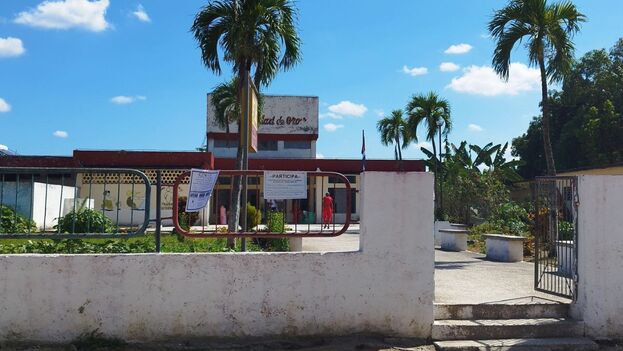
![]() 14ymedio, Havana, 27 March 2023 — The suspicions raised in the Cuban population by the 76% participation number in the parliamentary elections on March 26, as reported by the Government, do not make a dent in the provincial official press, which pulls out all the stops and registers even more participation.
14ymedio, Havana, 27 March 2023 — The suspicions raised in the Cuban population by the 76% participation number in the parliamentary elections on March 26, as reported by the Government, do not make a dent in the provincial official press, which pulls out all the stops and registers even more participation.
Thus, as read in Invasor, Ciego de Ávila breaks the record, with an attendance at the polls to elect its 23 deputies for the National Assembly of People’s Power of more than 86%.
The province of Matanzas follows closely, with a record — always according to official figures — of “more than 83.86%” of the electoral roll. For the regional newspaper of Artemisa, the figure of 81.15% is compared to “the heroic moncadista [attack on the Moncada barracks] feat of seven decades ago.”
In Pinar del Río, officialdom reports an 80.93% participation, and in Camagüey, 79.51%. “More than 78%” registered in Sancti Spíritus, almost the same as in Villa Clara, 78.08%.
The province of Granma limited itself to replicating the national figure of 75.92% attendance to report that its 34 deputies were elected.
Unlike these provinces, the highly populated provinces of Mayabeque, Cienfuegos, Holguín and Guantánamo haven’t released their figures. But the most eloquent silence is that of the two main regions of the country, Havana and Santiago de Cuba, which have not yet given specific results.
Meanwhile, the two main national official media, Granma and Juventud Rebelde, have been out of service since the early hours of this Monday.
President Miguel Díaz-Canel, who had described the elections as a “revolutionary victory,” expressed himself on social networks about the results. “Despite the draconian US measures, despite the fierce campaign and the calls for abstention, Cuba won,” he wrote via Twitter, specifying the official figures.
“There are numbers that say more than words: 70.92% of participation and 72.10% UNITED VOTE [sic], in the midst of so many difficulties, is a clean home run,” he said in baseball language, just a week after the defeat of the Cuban team against the U.S. team in the semifinals of the World Classic in Miami.
Citizen distrust is based on the observation of the polling stations, almost empty throughout the day on Sunday. And after the closing of the polls, officials did not put the preliminary results in each establishment on the doors. “Is there a site or place where you can check the results at the provincial and municipality level, even at the electoral college level?” asked a Cubadebate user on Monday.
Another reader answers: “You can go to your municipal assembly to find out, in addition you could be there at the time of counting in your electoral college, because, by law, anyone can participate and observe if they want.”
One of the complaints of the international organizations against these elections is, precisely, that the regime did not allow the presence of independent observers, and even more, it harassed the activists who announced that they would monitor the polling places.
Translated by Regina Anavy
____________
COLLABORATE WITH OUR WORK: The 14ymedio team is committed to practicing serious journalism that reflects Cuba’s reality in all its depth. Thank you for joining us on this long journey. We invite you to continue supporting us by becoming a member of 14ymedio now. Together we can continue transforming journalism in Cuba.
